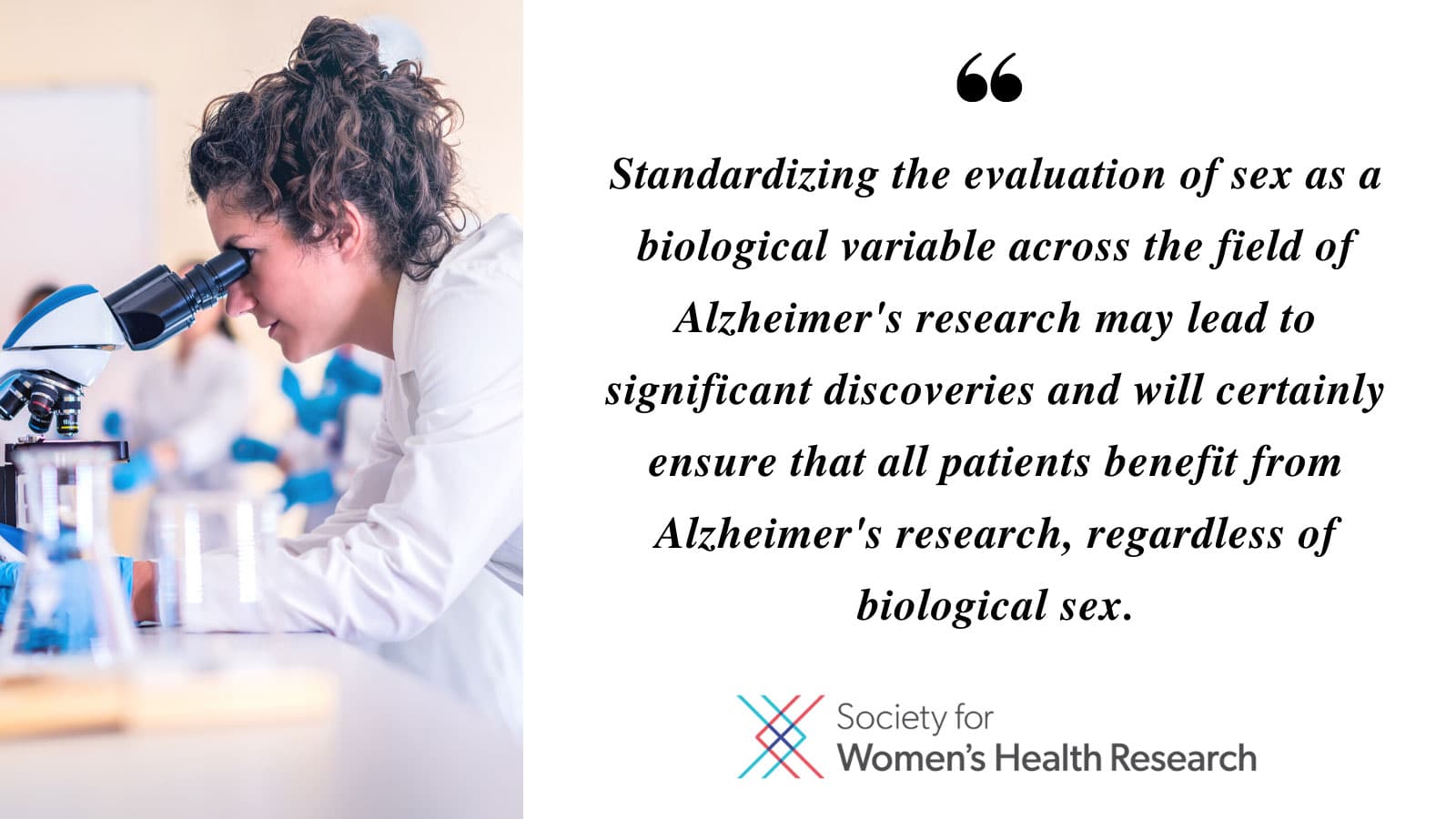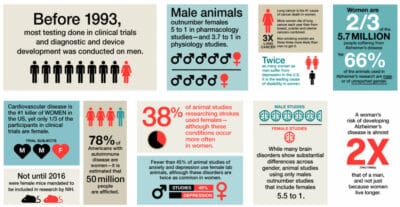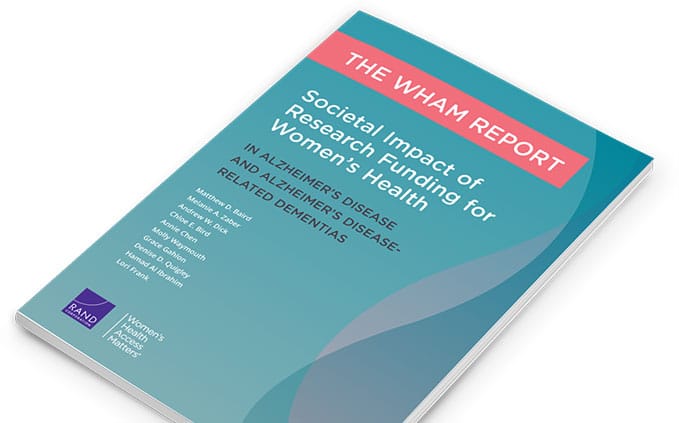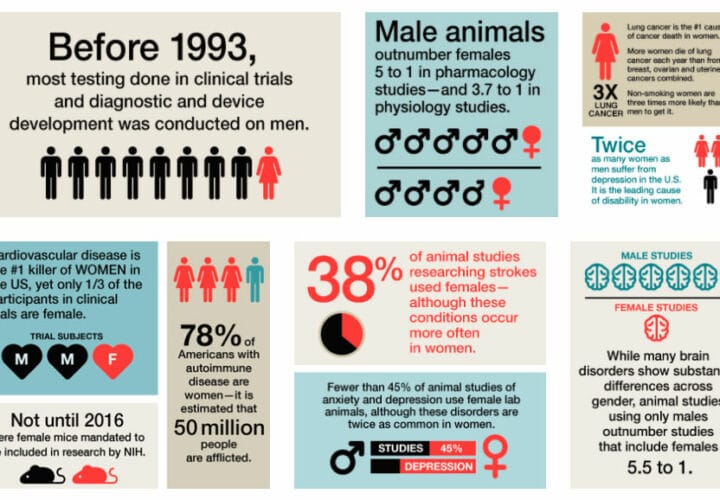A new report indicates that a more dedicated focus to sex and gender-based research in Alzheimer's could add as much as $930 million to the economy over the next three decades.
This past week, Women’s Health Access Matters (WHAM!) released a research study highlighting the economic disparities in women’s health funding in Alzheimer’s research, and their overall underrepresentation in research.
The report found that adding just $300 million will return $930 million to the economy over the course of 30 years, and will offset future costs due to better health outcomes for women living with Alzheimer’s disease or other related dementias, as well as improving quality of life.
WHAM!, a nonprofit organization dedicated to increasing the standards of women’s health research and the necessity of economic development to aid in prevention, diagnosis and treatment, commissioned the nonprofit RAND Corporation to focus solely on the impacts of sex and gender-based health research on women and their families. Specifically, they steered their attention to three different diseases that affect women on a grander scale: Alzheimer’s, rheumatoid arthritis and cardiovascular disease.
The gender gap in medical research is prevalent in Alzheimer’s research, starting in animal trials: While two thirds of Alzheimer’s patients are women, but 66 percent of animals used in Alzheimer’s research are male or of unspecified gender. Advocates see this disconnect as an impediment to unlocking the answers about why Alzheimer’s seems to affect women’s brains differently than men’s.

“This project really gives some guidance about how, as a society, we could prioritize research funding in a way to yield a very positive return on investment,” said Lori Frank, senior author of the study and a Senior Behavioral Scientist at the RAND Corporation, of the study. “Using conservative assumptions about health improvements, our modeling suggests that the U.S. could see significant gains in health outcomes, quality of life and economic savings by increasing investment in women-focused Alzheimer’s disease research.”
Key findings of the report defend that doubling investment into women’s health can have a 224-percent return on investment, and that this doubling of current funding will show that, in simpler terms, for every $1 invested, a $2 increase in the economy for health and quality of life improvements will show and in turn save $1.24 in nursing home care costs.
“We asked: What if we increased investment in women’s health? The results are clear: funding women’s health research is not just good science, it’s a good investment,” Founder and CEO of WHAM! Carolee Lee said in a WHAM! press release.
But today, the situation remains dire: Lee says that for every adult 35 or older in the U.S., $13.50 in federal tax dollars is invested into Alzheimer’s research. But, after further investigation, women receive only $3 each. And, while women represent 50 percent of people over the age of 35 and 66 percent of the 7 million people living with Alzheimer’s, just 12 percent of the National Institutes of Health (NIH) research budget goes to women-focused Alzheimer’s research.
Earlier this month, the Biden Administration released their preliminary fiscal year budget for 2022, which included a 23.5 percent increase to the U.S. Department of Health and Human Services’ funding and a proposed $51 billion to the NIH to enhance funding — a step in the right direction that advocates hope will keep growing.

Founding board member of UsAgainstAlzheimer’s Meryl Comer has partnered with WHAM! with the hope of deepening our understanding the impact of increased funding to women’s health research, according to a Q&A with Being Patient.
“For advocates, the WHAM! Report brings fresh data and a new economic lens that makes and broadens our case,” Comer said. “Some of the most exciting breakthroughs in Alzheimer’s are showing us what we should already know – that sex and gender-based research is critical to finding treatments and a cure for Alzheimer’s. Thanks to the WHAM! report, we know that these investments will generate outsized economic impacts in addition to health breakthroughs.”



